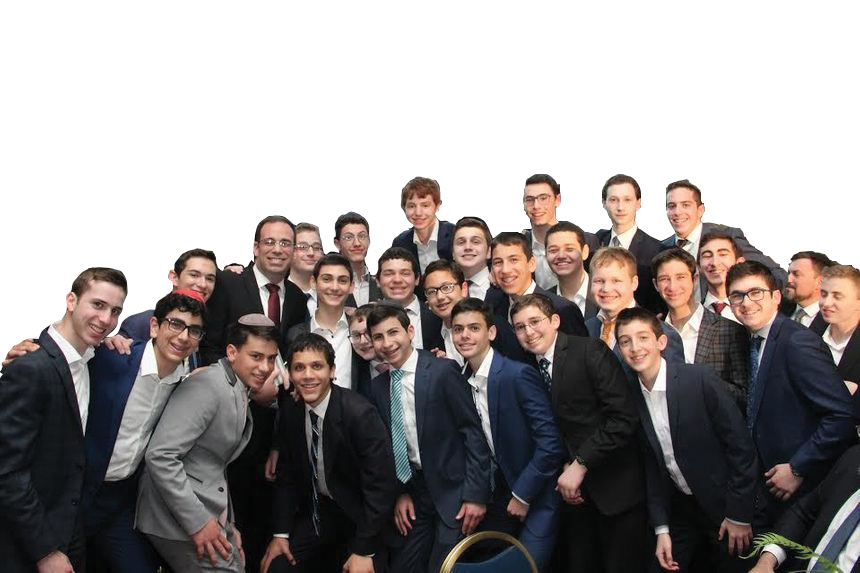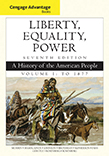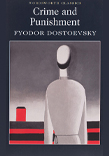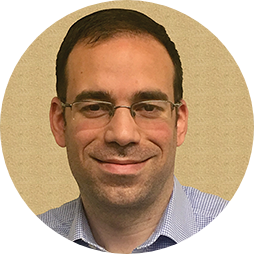
A grand tour of the West is an essential part of the Heichal journey for our most elite students. This is because more than four years ago, Heichal partnered with the Tikvah Fund to help revive the sort of classical education that elite Jewish students used to take for granted. Our top honors students study a neo-classical history and literature curriculum from ninth through twelfth grade in the slots which, in a typical school, are devoted to History and English. Based on centuries-old classical materials and methods used to teach elite Western students, this program focuses on the West’s greatest and most enduring works.


“our curriculum differs from the norm insofar as it is not mere collections of works: it walks through Western intellectual history and culture from beginning to end, challenging students to consider not only what has gone wonderfully right, but what has gone catastrophically wrong.”
Poverty and persecution usually deprived Jews of classical education, yet many Torah luminaries from across Europe studied Western classics, and Western Europe’s top rabbis had to progress through a thorough classical curriculum in the nineteenth and early twentieth centuries. Going against the grain of progressive education, which sought to replace the study of great works with merely practical skills, Rabbi Abraham Isaac Kook and Rabbi Joseph Soloveitchik unsuccessfully tried to start gymnasia of their own. But they were unsuccessful.
We are trying to revive their legacy. Our curriculum has ninth graders reading ancient mythology, Homer’s epics, Herodotus, Thucydides, Plato, Aristotle, Virgil, Cicero, Josephus, Tacitus, Augustine, Dante, Pico, and an extraordinary range of modern writers through a Jewish lens. Our curriculum differs from the norm insofar as it is not mere collections of works: it walks through Western intellectual history and culture from beginning to end, challenging students to consider not only what has gone wonderfully right, but what has gone catastrophically wrong. Our students are challenged to be leaders in reviving the West. They learn how religion and culture are mutually interdependent. We teach students a truth so often missed or ignored: that the West is Greco-Roman culture reexamined through a Jewish lens, and that Jews should take responsibility for reviving it.


"We teach students a truth so often missed or ignored: that the West is Greco-Roman culture reexamined through a Jewish lens, and that Jews should take responsibility for reviving it."
Our students do not seek to imitate or accommodate themselves to their surroundings, as is too often the case in assimilationist circles. Nor do they isolate themselves from culture, as often happens in particularly religious circles. And just as importantly, they do not seek some sort of compromise or negotiation, as is common in modern religious life. They recognize true religion – Judaism – as the source of the Western creative tradition that took Greco-Roman civilization and moved it forward in ways that could only be made possible by a covenantal G-d. They recognize its great achievements, as well as its destructive heresies. And they seek to help put our civilization back together, to learn from its errors, and to build a more glorious future for the Jewish people, the West, and humanity. I hope that you will join us in this quest.
Sincerely,

Rabbi Mitchell Rocklin, Ph.D.
Tikvah Humanities Program, Founder

Bloom, Allan. Love and Friendship. New York: Simon & Schuster, 1993.
Chadwick, John. Linear B and Related Scripts. Berkeley: University of California Press, 1989.
De Blois, Lukas and Robartus van der Spek. Introduction to the Ancient World. London: Routledge, 2008.
Hadas, Moses. “Vergil, Hebrew Prophecy, and the Roman Ideal.” Commentary, (Nov. 1, 1953).
Johnson, Paul. A History of the Jews. New York: Harper Perennial, 1988.
Palmer, R.R. and Joel Colton, eds. A History of the Modern World: To 1815, 8th ed. Vol. I. New York: McGraw-Hill, 1995.

Aristotle. Politics. Translated by T.A. Sinclair and T.J. Saunders. New York: Penguin, 1992.
Herodotus. Histories. Translated by Aubrey De Selincourt. New York: Penguin, 2003.
Hesiod. Theogony; Works and Days. Translated by M.L. West. Oxford: Oxford University Press, 1999.
Livy. Stories of Rome. Translated by Roger Nicols. New York: Cambridge University Press, 1999.
Plato. The Last Days of Socrates: Euthyphro, Apology, Crito, Phaedo. Translated by H. Tredennick and H. Tarrant. New York: Penguin, 2003.
The Republic. Translated by D. Lee and H.D. Pritchard. New York: Penguin, 2003.
Perry, Marvin, et al., eds. Sources of the Western Tradition: From Ancient Times to the Enlightenment, 3rd ed. Vol. I. Boston:Houghton Mifflin Company, 1995.
Pritchard, James R., ed. The Ancient Near East: An Anthology of Texts and Pictures, Vol. I and II. Princeton, NJ: Princeton University Press, 1975.
Tacitus. Annals. Translated by Michael Grant. New York: Viking, 1956.
Thucydides. History of the Peloponnesian Wars. Translated and edited by Rex Warner. New York: Penguin, 2003.

The Epic of Gilgamesh. Translated and edited by N.K. Sandars. New York: Penguin, 1972.
Augustine. City of God. Translated by Henry Battenson. New York: Penguin, 2004.
Cohen, Seymour, ed. The Holy Letter. New York: Jason Aronson Inc., 1994.
D’Aulaire, Ingri & D’Aulaire, Edgar. D’Aulaires’ Book of Greek Myths. New York: Delacorte, 1992.
Homer. The Iliad. Translated by Robert Fagles. New York: Penguin, 1990.
The Odyssey. Translated by Robert Fagles. New York: Penguin, 1996.
Livy. Stories of Rome. New York: Cambridge University Press, 1982.
Maimonides, Moses. The Guide for the Perplexed. Mineola: Dover Publications, 2000.
Sutcliff, Rosemary. Black Ships Before Troy. New York: Laurel-Leaf, 2005.
Sutcliff, Rosemary. The Wanderings of Odysseus. New York: Laurel-Leaf, 2005.
Virgil. The Aeneid. Translated by Robert Fagles. New York: Penguin Classics, 2008.

Boorstin, Daniel, ed. An American Primer. New York: Penguin, 1966.
Cervantes, Miguel. Grossman, Edith, trans. Don Quixote. New York: Ecco, 2015.
Cooper, James Fenimore. The Last of the Mohicans.
Defoe, Daniel. Robinson Crusoe
Machiavelli, Niccolò. The Prince. Translated by Harvey C. Mansfield Jr., 2nd ed. Chicago, IL: The University of Chicago Press, 1998.
McClay, Wilfred M. Land of Hope: An Invitation to the Great American Story. New York: Encounter, 2019.
McMichael, George, ed. The Concise Edition of American Literature, 5th ed. Upper Saddle River, NJ: Prentice Hall, 1998.
Murrin, John M. et al. Liberty, Equality, Power: A History of the American People. Vol. I, 5th ed. New York: Cengage, 2007.
Palmer, R.R. and Joel Colton, eds. A History of the Modern World: To 1815, 8th ed. New York: McGraw-Hill, 1995.
Perry, Marvin, et al., eds. Sources of the Western Tradition: From Ancient Times to the Enlightenment, 3rd ed. Vols. I & II.
Boston: Houghton Mifflin Company, 1995.
Shakespeare, William. Hamlet. New York: Simon & Schuster, 2012.
Swift, Jonathan. Gulliver’s Travels. New York: Barnes & Noble, 2004.

Andersen, Hans Christian. “The Shadow.” (Open-Source Handout)
Dickens, Charles. A Tale of Two Cities. Oxford: Oxford Univ. Press, 2008.
David Copperfield. New York: Barnes & Noble Books, 2003.
Dostoevsky, Fyodor. “The Dream of a Ridiculous Man.” (Open-Source Handout)
Dumas, Alexandre. The Three Musketeers. New York: Barnes & Noble Books, 2004.
De Tocqueville, Alexis. Edited by Joseph Epstein. Democracy in America. New York: Bantam Dell, 2000.
McClay, Wilfred M. Land of Hope: An Invitation to the Great American Story. New York: Encounter, 2019.
Perry, Marvin, et al., eds. Sources of the Western Tradition: From Ancient Times to the Enlightenment, 3rd ed. Vols. I & II.
Boston: Houghton Mifflin Company, 1995.
Roosevelt, Theodore. “The Strenuous Life.”
Tolstoy, Leo. “The Cossacks”

Dostoevsky, Fyodor. Crime and Punishment. Wordsworth Classics
Johnson, Paul. A History of the Jews. New York: Harper Perennial, 1988.
Palmer, R.R. and Joel Colton, eds. A History of the Modern World: To 1815, 8th ed. New York: McGraw-Hill, 1995.
Other readings to be handed out.

Rabbi Mitchell Rocklin, Ph.D., is a research fellow at the Tikvah Fund, where he oversees the development and implementation of classical education curricula in Jewish schools. This effort has been featured in The Wall Street Journal, which covered Heichal HaTorah, Tikvah’s flagship school, in a feature about American religious life.
Rabbi Rocklin has held postdoctoral fellowships at Princeton University and Yeshiva University, following service as a synagogue rabbi in Connecticut. He is also a Chaplain in the Army National Guard with the rank of Major, as well as the President of the Jewish Coalition for Religious Liberty.
Rabbi Rocklin holds a B.A. in History and Political Science from Yeshiva University, rabbinical ordination from Yeshiva University’s affiliated theological seminary, and an M.Phil. and Ph.D. in History from the Graduate Center of the City University of New York. His writings have appeared in a number of publications, including The Los Angeles Times, National Review Online, The Forward, and Mosaic.